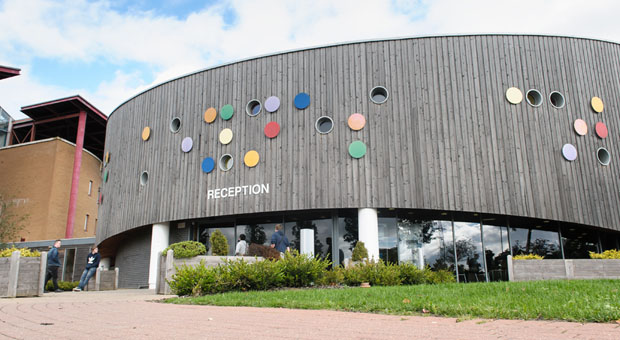Today’s headlines contain a catchy claim from BIS and from Matthew Hancock that the Government is opening a new FE college to help train the workers who will build HS2. According to the story, it’s the first new FE college for twenty years. The college, to be sited somewhere along the HS2 route, is described like this:
‘The new college will provide training in how to make the most of cutting edge technology and use state-of-the-art equipment to deliver programmes designed specifically for the HS2 project. It will also build relationships with a network of affiliated facilities, including existing colleges, private training providers, HE institutions and major supply networks off route. Learners from across the country will have opportunities to become involved and work along the line.’
It sounds an awful lot like a National Skills Academy. There are 19 of them, including in construction and railway engineering and they’ve all been opened in the last ten years, let alone the last twenty. You can read about them here. I could also mention University Technical Colleges too.
But I’ll stop being churlish, because it’s obviously a good thing that the government want to invest in both FE and the skills needed for such a massive infrastructure project (though I’m sure that the said NSAs as well as numerous FE colleges between London and Birmingham will want to know why we need a ‘new one’).
But for me the story is significant for two reasons. Firstly it demonstrates that the media and many policymakers still have a bit of a blind spot for FE. Famously described by many as the ‘Cinderella’ sector and by Andrew Foster as the ‘neglected middle child’ between schools and universities, FE rarely gets the headlines that the other two phases of education command. Worse, in times of austerity or budget problems, FE has often carried the can for costs elsewhere – look at the recent announcement by DFE to chop funding for 18 year olds in FE colleges. It’s claimed to be a ‘tough choice’ – as most cuts usually are – but in reality it isn’t. Rather it’s the only option after headline commitments and policies on school reforms are protected.
Secondly, it shows that FE hasn’t had the political or policy thinking that either schools or universities have more recently ‘enjoyed’. There have been plenty of new schools and universities created by both this and the last Government – all with either new freedoms to design curriculum, hire staff, recruit students and pupils or established autonomy to govern their own affairs (as with the case in higher education). So where is the same level of autonomy and innovation in FE? Why aren’t there any ‘free colleges’? Why aren’t ‘new providers’ seen as the same force for good as in either schools or higher education?
FE still finds itself wrapped up in targets and prescribed qualifications and standards that it cannot adapt despite pushes for them to meet the needs of local employers and communities. Colleges used to be described as everything that doesn’t happen in schools or colleges. Not the catchiest of missions I’ll grant you. But nowadays they could be described as everything that happens including in schools and in universities – as the Coalition has encouraged the delivery of more higher education as well as the recruitment of 14-16 year olds and the sponsorship of free schools, academies and UTCs.
But with Labour’s interest in specialist colleges and specialisms – and with Matthew Hancock’s commitment to a ‘new’ college ‘delivering programmes designed specifically for HS2’, this may be about to change. And not before time.
You would be forgiven for thinking that specialist colleges in both FE and HE have been disappearing. Mergers over the last two decades have seen many smaller specialists in both sectors absorbed into much bigger institutions – sometimes into even larger group structures where several colleges and schools as well as HE are managed under an umbrella body (see the Activate Learning group along the HS2 route as an example).
But many specialist institutions have typically offered FE and HE alongside each other – as specialists tend to organise provision and progression ‘vertically’ as well as ‘horizontally’. Look at Leeds or Plymouth College of Art as examples. The former has been re-designated as a higher education institution and the latter is in the process of doing so (it has also opened a free school along the way). Look too at specialist colleges in the land based sector – like Sparsholt, Moulton, Writtle or Reaseheath.
There should be many more specialist institutions like this – as well as the planned HS2 college (and more NSAs). In the fluid modern world of education we shouldn’t worry too much about how we categorise or label them. Rather policymakers in both parties should think about how they can let them and others in FE enjoy the dynamism and autonomy that we see as a matter of course in policy towards schools and universities: freedoms over curriculum and qualifications, trust to work with employers and communities as well as the ability to create new institutions and structures where necessary. In short, a mission (and permission) to innovate. But also an expectation that the capacity for such innovation and dynamism should exist within institutions and not outside them.
Andy Westwood, CEO

